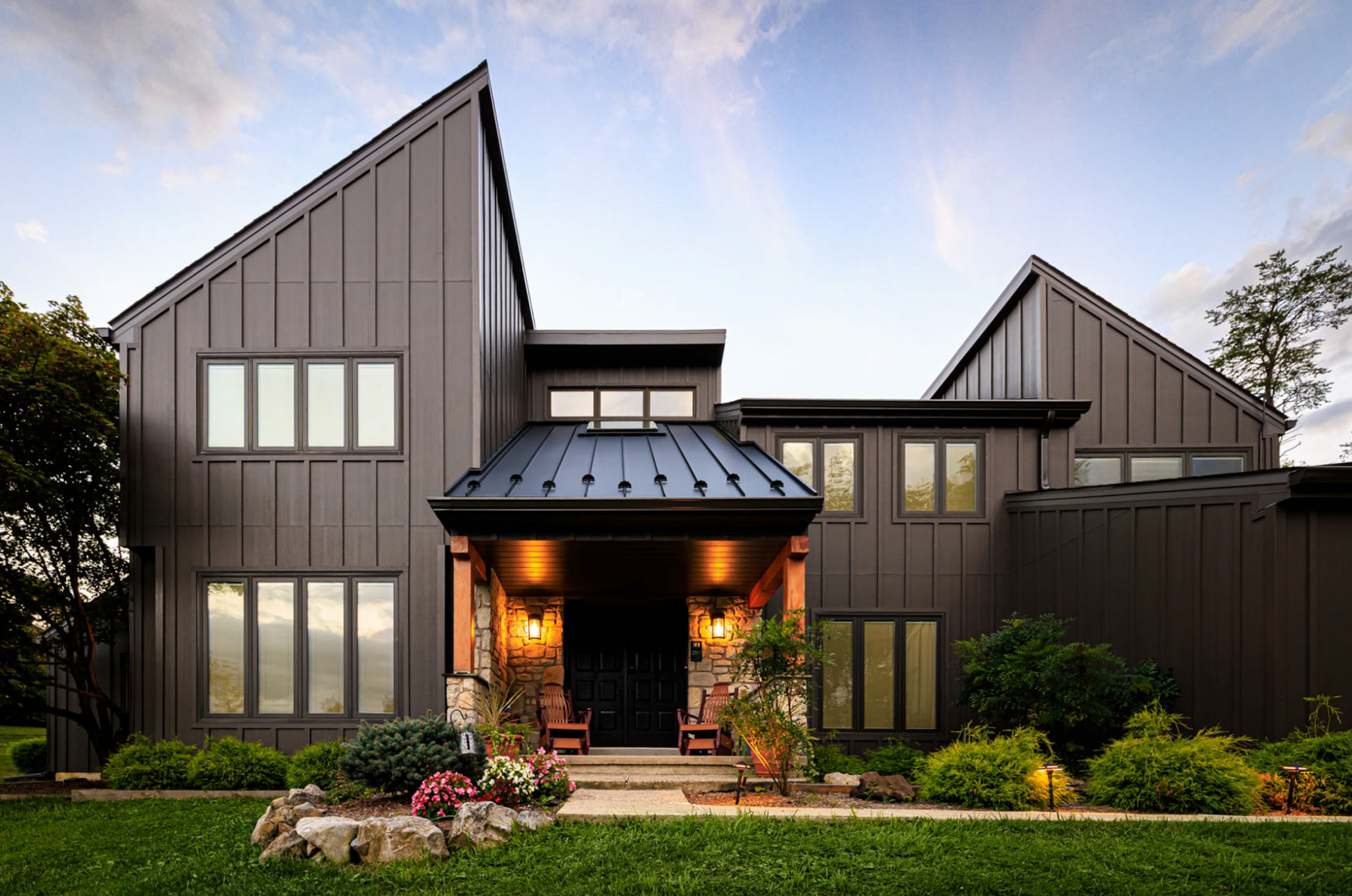Deciding to build or rebuild your deck is one thing. But choosing the right materials for the job is another. And frankly, the choice can feel a little overwhelming.
But it doesn’t have to be. And this article will help you choose the perfect building materials for a deck you love—one that works for your budget, lifestyle and the ultimate enjoyment of your outdoor space.
So if you’re ready to get the deck of your dreams, read on. You’ll learn the pros and cons of wooden and composite beams and how to make the right choice for your home.
Choosing the Right Building Materials
When choosing between building materials for your deck, you’ve got two basic options:
Natural wood and composites.
Wood is pretty self-explanatory. It’s wood. And it’s long been the standard in the decking industry since decks became a popular addition to the American home in the 1970s and 80s.
But wood isn’t the only contender in the home decking market anymore. In recent years, composites have exploded in popularity—and for good reason. They’re durable, much lower maintenance and even more cost effective over the long haul.
So, while more modern choices can sometimes make it tough to decide, the Smucker Crew has you covered. And by going through the points below, you’re guaranteed to end up with a deck you love.
Considerations for the Perfect Deck
When choosing between wood and composite decking, there are a few things to consider.
These include both upfront and long-term costs, maintenance requirements, durability, appearance and environmental sustainability.
While this may seem like a lot to think about, it’s not. And taken one point at a time, we think you’ll find the choice rather easy.
Overall Costs of Wood vs Composite
Since cost tends to be the determining factor for most homeowners, it’s the perfect place to start.
Simply put, composite materials cost more upfront. A typical, high-quality composite build runs you somewhere in the ballpark of $30-$60 per sq ft. Wood on the other hand runs about $23-$42 per sq ft—a significant markdown.
This cost difference may be a limiting factor for some—especially if you desire a large or complicated deck design. However, those upfront costs aren’t the full story, and you will be required to pay more down the line.
That’s because all decks need to be maintained—meaning additional time and money on a yearly basis. And when it comes to the cost of ownership over a five to ten year period, composites actually come out on top.
In fact, composite decking requires about a fifth as much in annual maintenance costs as their wooden counterparts. Within ten years, those savings amount to a deck that costs less over time.
This is due to the fact that composite materials are so low maintenance (which you’ll learn about in the next section) and all you really need to pay for is a brush and some detergent for the occasional cleaning.
A composite deck also lasts much longer. So if you intend to be in your home for a few more decades that can mean the difference between having to replace a deck or not.
In short, if you can afford the upfront cost of building a composite deck, it’s a much wiser financial decision over time. But let’s take a look at the maintenance requirements as well.
Maintaining a Wood vs Composite Deck

All decks require maintenance. At the very least, they need to be cleaned once or twice per year to maintain an attractive appearance and prevent mold growth. However, the difference in upkeep from a wood and composite deck is stark.
To maximize a wood deck’s life, it needs to be sanded, sealed, stained and/or painted every year or two. Without this regular service, the wooden planks will fade, crack and splinter under the constant barrage of the elements.
Composites on the other hand require very little. Designed to be UV, moisture and pest resistant, the planks simply won’t deteriorate the way wood does. And all that’s needed is a good scrubbing once or twice per year to keep them in tip-top shape.
So, if time and labor costs are a factor for you, composites are the clear winner. But let’s see how the two compare over the long haul.
How Long Do Wooden And Composite Decks Last?
Durability is another factor to consider when choosing between a wooden or composite deck. Whichever material you choose, you’re going to be spending money—so it’s important to know how far into the future you can enjoy that investment.
A properly maintained wooden deck will last you about 15 years. (Meaning annual cleanings, sanding, staining and occasional repairs.) And no matter how well your deck is cared for, there will come a time when the boards crack, bend, splinter, rot, grow mold or fall prey to insects.
Compare that to composites—some of which boast manufacturer’s warranties for as much as 25 to 50 years. And those warranties are easy to backup. Because your beams will last for decades without a single problem.
So once again, composites pull ahead of the pack.
Appearance And Aesthetic of Wood vs Composite Decks
If you think this article is a little biased toward composites, you’re not wrong. At Smucker, experience has taught us that composites are the way to go for most homeowners. That said, there is one area where wooden decks are admittedly nice.
Appearance.
Because facts are facts. And nothing looks like wood quite the way that wood does. (It is wood, after all.) It’s just got that natural feel, complete with beautiful color and grain variations that’s hard to beat. So if you can afford the additional time and money required to keep it in shape, go for it.
But don’t be fooled. While composites do look engineered, they can be quite striking.And with the many color varieties available to choose from, you’re sure to find the perfect match to accent your home.
And since the boards are so durable, they won’t start to look old and worn out as the years go by. Meaning they’ll maintain their attractive appearance for 20, 30 years and beyond.
If appearance is a determining factor for you, take a look at some different materials to see what you like. While you do, also remember that loving your deck has a lot more to do with how you use the deck than anything else. So be true to your tastes and lifestyle and choose accordingly.
Environmental Impact of Wood vs Composite Boards

If you’re eco-conscious, composites are the clear choice. Here’s why.
First of all, they’re made from recycled materials—things like reclaimed sawdust and recycled plastics.
Second, due to their lower maintenance needs, you use less chemicals to keep them looking nice. The stains, varnishes and oils required for wooden decks take their toll on your backyard and the greater environment. Not to mention they need to be manufactured in plants that aren’t doing our natural systems a whole lot of good.
Finally, since composites last so long, they don’t need to be replaced with near the frequency of wooden decks—keeping more trees in the forest and making our planet a healthier place.
Wood or Composites: Which Is Right for You?
At the end of the day, choosing wood or composite decking is up to you. Consider the points above and do what makes the most sense for your needs and wants.
At Smucker Exteriors, we think that if you can afford the upfront costs, composite is the way to go. It’s an investment that pays off in saved money and labor as the years go by. You also get to enjoy your deck for nearly twice as long.
If you’re interested in exploring your options with one of Smucker’s experienced deck installers, reach out for a free quote today. The Smucker crews have been helping Pennsylvania homeowners fulfill their decking and exterior dreams for many years—and they’re ready to do the same for you.
So don’t put your renovation dreams on the backburner any longer. Take the first step and Get Your Free Quote Today.












